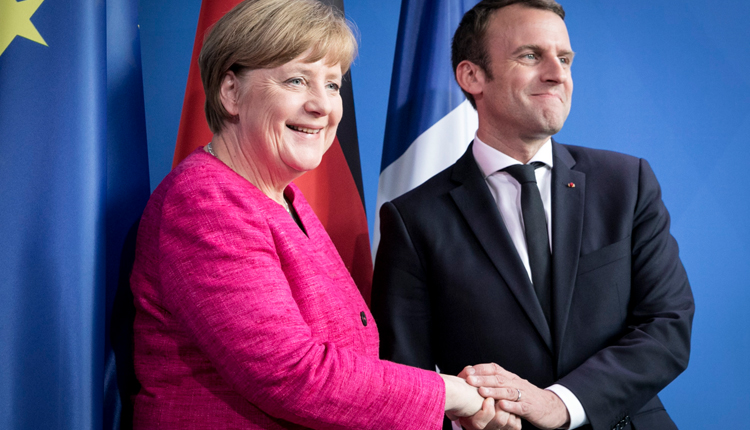French President Emmanuel Macron was headed for a clash with German Chancellor Angela Merkel this week after Paris was isolated on Tuesday in opposing starting membership talks with North Macedonia.
Denmark and the Netherlands sided with the French rejection of launching accession talks with another Balkan country, Albania in a meeting of EU ministers in Luxembourg, which ended with no agreement on the matter that would require unanimous backing of all 28 EU states.
“I regret very much that member states could not take a decision,” the visibly upset top EU official dealing with the bloc’s neighborhood, Johannes Hahn, said. “It’s not a moment of glory for Europe.”
“We have to restore our credibility in Western Balkans and live up to our commitments. North Macedonia and Albania have done their homework and implemented painful reforms,” he said after EU states shied away from making the step for a third time in a year and a half.
But France ignored the broad support among EU states to give green lights to the countries sitting in a strategic region on the bloc’s doorstep.
Amelie de Montchalin, France’s European affairs minister, said there could be no way forward before a reform in how and when candidates for membership are vetted on EU targets, which range from economic policy to human rights and the rule of law.
In Paris, a French presidency official said Macron’s government would not agree to open the talks now.
“These countries will be part of the European Union one day… but it is too early to open the legal process toward enlargement,” the presidential official said.
France says the EU faces too many challenges – including Britain’s planned exit, China, migration and security threats posed by Russia – to let in two more states from the Balkans, a region still scarred by the legacy of 1990s wars and struggling with crime and corruption.
But the French stance has raised concerns about further delays in an already protracted process that could backfire by spurring Balkan states to cultivate closer ties with Russia, Turkey or China.
In Berlin, a government official said it was a priority matter for Germany, which will hold its annual summit with France on Wednesday.
“Chancellor Angel Merkel will raise the issue with Macron on Wednesday,” the official said, adding that she would also raise the matter at a summit of all 28 national leaders in Brussels on Thursday and Friday. “It is a… strategic question for the EU.”
With more worry about Albania’s track-record on fighting corruption and a widely shared desire to award North Macedonia for settling its historic name feud with EU member Greece, the Luxembourg meeting at some point discussed going ahead with Skopje but not Tirana. Paris blocked that attempt as well.
“The first thing we need to talk about is how Europe must reform the way it does enlargement and negotiations,” de Montchalin said, calling the process “an endless soap opera”. “Is the process efficient? From our point of view, no.”
The six Balkan countries of Albania, Bosnia, Kosovo, Macedonia, Montenegro and Serbia, all of which apart from Albania emerged from the 1990s disintegration of Yugoslavia, are considered future EU members.
While the Netherlands supported French wariness of membership talks for Albania, which is already a member of the U.S.-led NATO alliance, most other EU countries vented frustration with the French position.
“It’s very important to give a political signal that enlargement is not dead,” said George Ciamba, Romania’s EU minister.
source: Reuters
